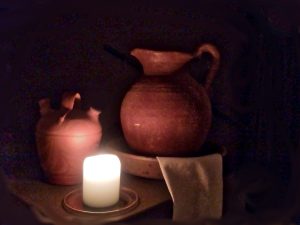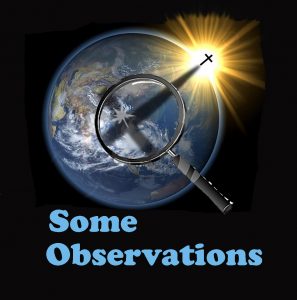YSICM Mission Statement Teaching – Part 4
The past few weeks we have been looking at the history and now the Mission Statement of Your Servant in Christ Ministries, or YSICM (why YeS I C HiM)
This week I want to look at the next touch point for this ministry…
Parts of Mission Statement
- To serve Congregations
- Fulfill the first and great commandment to be God-hungry believers
- Living and ministering out of a culture of prayer
- Together with others in the community
- Hunger for and invite God’s Transforming Presence
- For the Glory of His Name
The local congregation is the instrument that God desires to use to touch the world with His love, salvation and presence. These are congregations filled with “God-hungry” believers who have learned how to live together in a culture of prayer.
What is a “Culture of Prayer?” I have been using this term for nearly twenty years to describe the lifestyle of the local church in the area of prayer.
A “Culture of Prayer” is NOT a prayer program. We have a tendency in our days to program every part of the life of the church. That is not necessarily bad in itself. We have a program of teaching, a program of worship, a program of giving, o f outreach. All of these can be very helpful. And this is not to say that there can and perhaps should not be a “program” for our prayer ministry in the church. But that is entirely different than a “Culture of Prayer.”
First, let us think about culture. What is a culture? Webster defines culture this way:
1a: the customary beliefs, social forms, and material traits of a racial, religious, or social group also : the characteristic features of everyday existence (such as diversions or a way of life) shared by people in a place or time popular culture Southern culture
b: the set of shared attitudes, values, goals, and practices that characterizes an institution or organization a corporate culture focused on the bottom line
c: the set of values, conventions, or social practices associated with a particular field, activity, or societal characteristic
d: the integrated pattern of human knowledge, belief, and behavior that depends upon the capacity for learning and transmitting knowledge to succeeding generations
Culture is the shared attitudes, values and goals, beliefs, and behavior that is passed on to succeeding generations. So a Culture of Prayer us more than just a program of activity. It is a lifestyle of the persons who are a part of the local congregation. How they act, and respond to life, how they make decisions, and how they relate to one another.
The New Testament talks about being “Devoted” to prayer in Colossians 4:2 – the word that is used there has the idea “to be earnest towards, that is to persevere, be constantly diligent, or to attend assiduously, to adhere closely. Assiduously has the idea of being marked by “careful unrelenting attention, persistent application”
Being devoted to prayer is one aspect of a Culture of Prayer. And a Culture of Prayer is the living out of that devotion. Think about this, Devoted to something is a part of who I am. The culture I live in is a part of who I am. Culture is in many ways unspoken. A young child learns a culture, not by taking “Culture Classes,” but by being exposed to the lifestyle, the attitudes, and choices of his or her parents, and those around them.
A Culture of Prayer, as with any other culture, begins in the family, and is transmitted most of the time without words. In a Culture of Prayer, every aspect of life is infused by the lifestyle of prayer. In the church, every decision, every “program” is birthed, supported and maintained through prayer. Prayer that is in constant fellowship with the Lord for blessing, instruction, courage, faith, persistence.
Another illustration of a Culture of Prayer. Suppose for a moment that you work as a janitor in the local school. Your job is to clean the hallways, and classrooms each evening after school in preparation for the coming day. You sweep and mop and dust the hallways, and desks of teachers and students. Now imagine a Culture of Prayer where you do not merely clean, but as you dust around Tommy’s desk, you are praying for him, and his family. Praying for his heart to be open to the Gospel, for protection as he grows from the influences of the world. You pray for the teacher in that classroom as you dust the teacher’s desk and pray the presence of the Lord in that classroom or hallway as you sweep and mop the floor. Suddenly your “job” becomes you lifestyle ministry of prayer.
In order for the church, to be the influence in the world that God desire it to be, we must learn to develop a “Culture of Prayer” to be living out a lifestyle of being “devoted” to prayer.
Consider allowing us to come and teach these principles in your church, or with your group. Email at steveloopstra@gmail.com or call 360-862-5646


 Forward to a friend
Forward to a friend


















